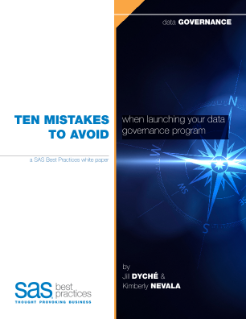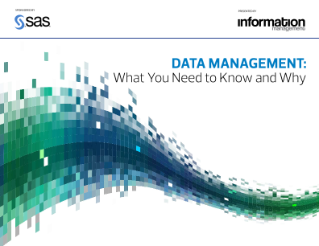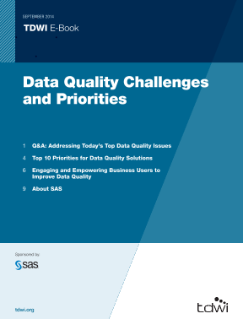
If your organization is large enough, it probably has multiple data-related initiatives going on at any given time. Perhaps a new data warehouse is planned, an ERP upgrade is imminent or a data quality project is underway. Whatever the initiative, it may raise questions around data governance – closely followed by discussions about the





